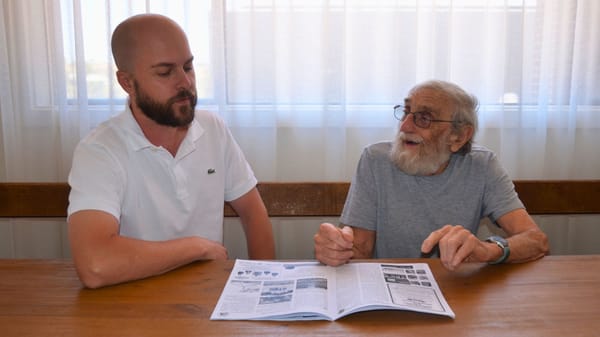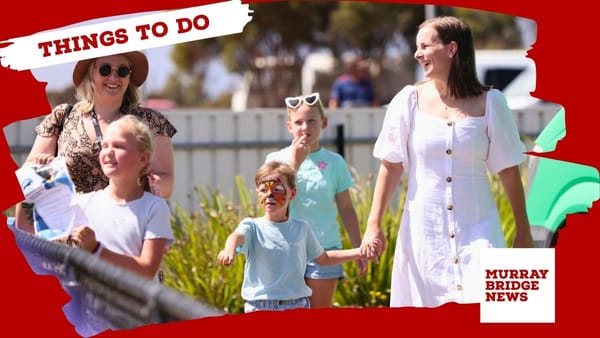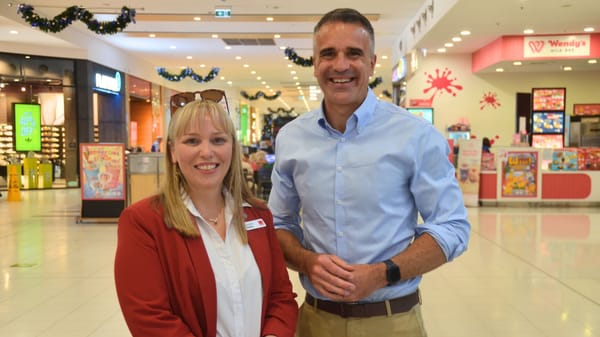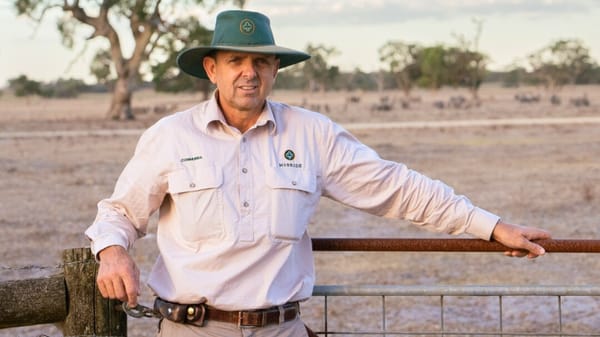'You learn to accept it': Navigating loss, grief and life with Silent Ripples
Fourteen years after the death of her son, Janet Kuys opens up about the process she and others have been through.
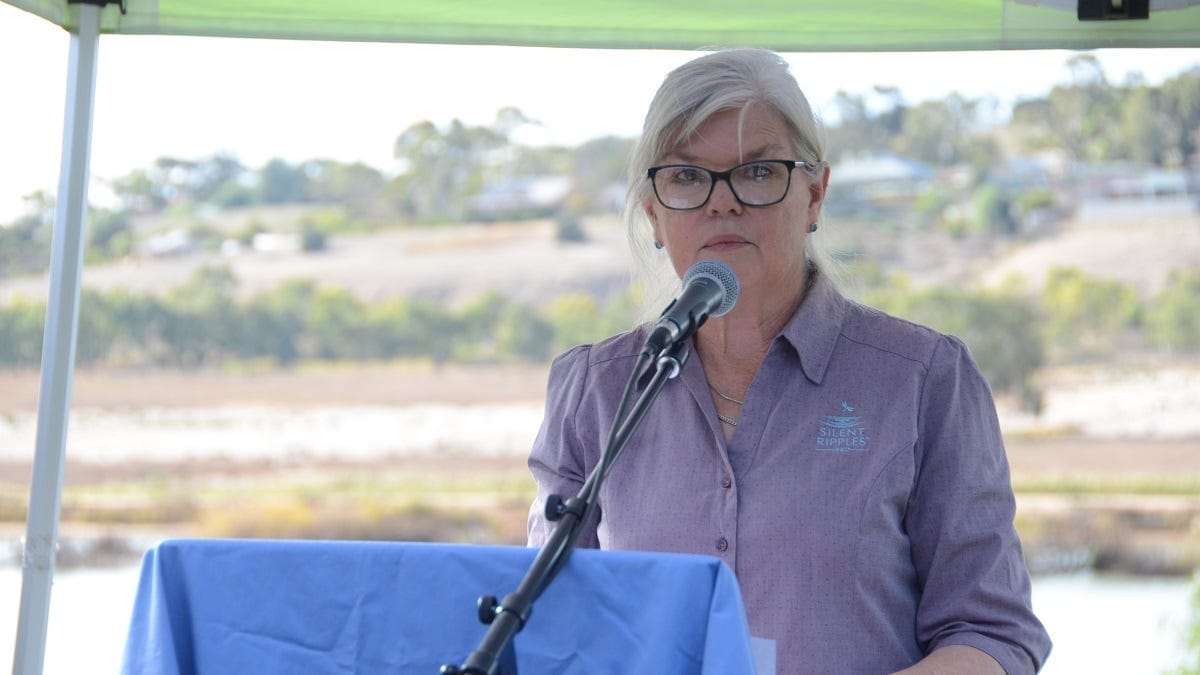
This story has been made free to read under Murray Bridge News’ editorial policy on public health and wellbeing. Please consider supporting our work by subscribing.

Janet Kuys wishes she had never met anyone who was there on Sunday afternoon.
She said as much as she stood at a microphone, regarding one face, then another in a crowd of about 50 beneath the winter sunshine.
Everyone present wished they were somewhere else, she said, wished they didn’t know each other because of the thread that tied them all together – “but it is what it is”.
Fourteen years have passed since Ms Kuys’ son Aaron died by suicide.
His name is one of 44 recorded in a memorial garden at Murray Bridge’s Round House, overlooking the River Murray.
On Sunday, the loved ones they left behind came to mourn and remember, and to work towards a brighter future while accepting the past and present.
The gathering, organised by local support group Silent Ripples, is an annual fixture.
“It’s something that we ... I can’t say ‘look forward to’, but we find great solace in having everybody around,” Ms Kuys said.
“It does help us a great deal.
“We’re living our lives – we haven’t stopped, we still go on, we have to, we don’t have a choice – but we make the loss of our loved ones mean something by being here today, by having a garden and by recognising and spreading the word that suicide isn’t something that we should be horrified by.
“It’s something that happens (and) it’s caused through illness: depression.”
By supporting people bereaved by suicide, Silent Ripples hopes to help others who are battling inner demons.
Two more group members reflected on loss during the service: Andrew Allanson in an original song and Dianne Collett with a poem by an unknown author.
Governments are beginning to recognise the need
Another speaker at the service, state MP John Dawkins, noted that South Australia’s Parliament was due to debate new suicide prevention laws this year.
The Suicide Prevention Bill would prioritise suicide prevention throughout the state’s health system and wider community, providing for widespread education and interventions.
It would also establish a record of every death by suicide in the state.
The fact such things were being discussed at all showed how much public attitudes had changed, Mr Dawkins said.
“We’ve now got a number of the big service club organisations, many sporting organisations, other groups (talking about the issue),” he said.
“Going back to when I started this work in the early 2000s, (they) would run a mile if you said the word ‘suicide’.
“That has largely changed.”
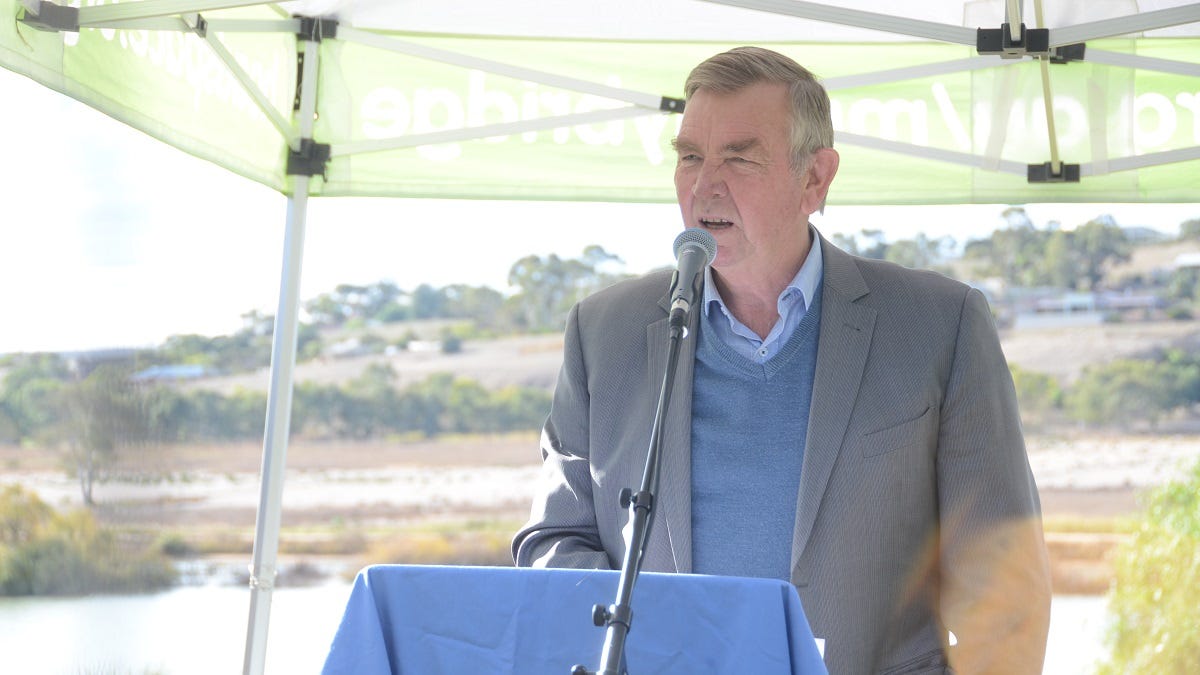
On Monday, the federal government announced it would spend $2.3 billion on mental health and suicide prevention.
The money will fund after-care services for every Australian discharged from hospital following a suicide attempt, as well as new mental health centres around the nation.
Federal MP Tony Pasin said the government was committed to reducing the suicide toll to zero.
“We want a system that proactively reaches out to support people early in life and early in their experience of distress,” he said.
Support service StandBy also announced an extension of its own services on Monday, after reaching agreement with Anglicare SA.
It will provide 24/7 support to all South Australians bereaved by suicide from July 1 onwards.
- Get help: Talk to your GP; call Lifelife on 13 11 14, the Suicide Call Back Service on 1300 659 467 or Beyond Blue on 1300 224 636; or, in an emergency, dial 000. For support after losing a loved one to suicide, visit silentripples.net/contact-us or standbysupport.com.au.


